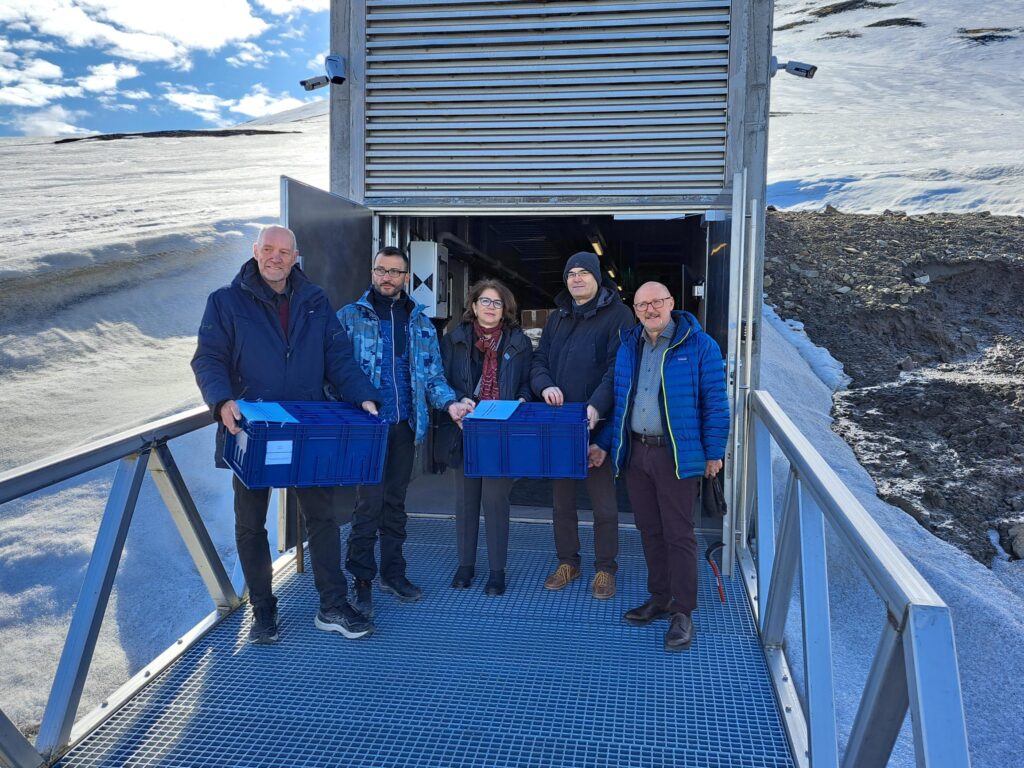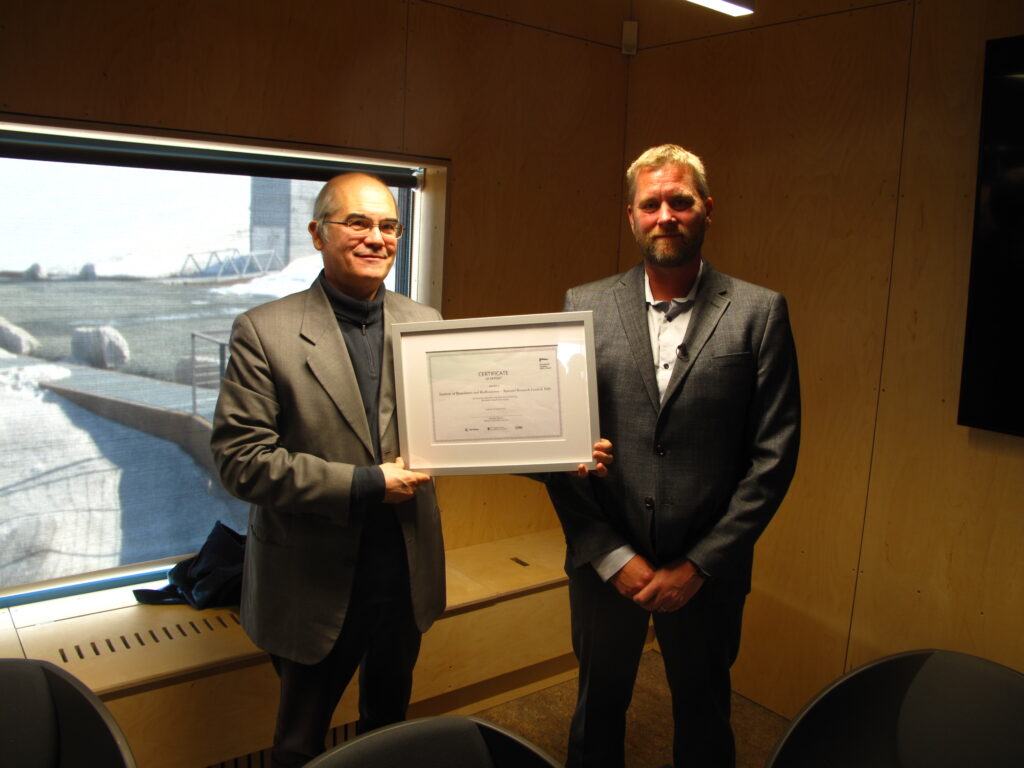Longyearbyen, Svalbard, 6-7 June 2023 –the Svalbard Global Seed Vault welcomes 40,507 new seed samples from nine genebank depositors, including collections from Latvia, Morocco, Taiwan, USA, Netherlands, Israel, Poland, Zambia, and Italy.
2023 marks the 15th anniversary of the Vault and with the new deposits from 9 institutions, including international, regional and national genebanks, as well as smaller collection holders, we see the collection surpass 1.25 million seed samples.
The Institute of Biosciences and BioResources from Italy is depositing seeds for the first time and is the 99th gene bank who has signed up to use the Seed Vault as a security deposit for their seed samples.
 Photo: NordGen/ Svalbard Global Seed Vault
Photo: NordGen/ Svalbard Global Seed Vault
Italy’s Institute of Biosciences and BioResources deposited 392 samples of two species of wheat in June 2023:
“We are happy to back up our oldest collection, dating from our first collecting missions in the 1970s, where many of these accessions have since become extinct. Safeguarding agro-biodiversity is of fundamental importance for the future of humanity, which depends on agriculture and food. Preserving and making seeds available to scientists and breeders is an increasingly important and urgent need.” says Gaetano Laghetti of the Institute of Biosciences and BioResources, Italy.
 Photo: NordGen/Svalbard Global Seed Vault
Photo: NordGen/Svalbard Global Seed Vault
With 20,300 more samples from 374 species and subspecies of crops, the largest deposit on this occasion comes from the United States Department of Agriculture (USDA), who has been shipping safety duplicate seeds to the Vault since its opening.
The International Center for Agricultural Research in the Dry Areas (ICARDA) will back-up nearly 9,050 samples of 145 species and subspecies, including cereals and legumes, making their deposit the 2nd largest.
“Crop diversity is a unique source of novel adaptive traits that can provide resilience in modern crops to tackle the current and future agricultural challenges. Under no circumstances should we jeopardize it,” says Athanasios Tsivelikas, from ICARDA. “We are deeply imbued with the crucial role that the Svalbard Global Seed Vault holds for food security, for the generations to come.”
The 3rd largest deposit this June comes from the World Vegetable Centre, who are backing up nearly 8,550 samples from 178 species of vegetable, aromatic and medicinal plants.
“Seeds stored in genebanks face risks, as there are uncontrollable factors such as war, fire, and mechanical failures that can lead to the loss of seeds. Backup storage outside the country of origin can effectively mitigate these risks, making the Vault key for protecting our heritage for future generations.” says Maarten van Zonneveld, Genebank Manager of the World Vegetable Centre.
The Svalbard Global Seed Vault is owned by Norway and managed in partnership between the Norwegian Ministry of Agriculture and Food, the regional genebank NordGen, and the Crop Trust. The partners welcome the new depositing gene bank and are grateful for new seeds samples secured in the Seed Vault.
Stefan Schmitz, Executive Director of the Crop Trust, said:
“Every seed is important. Each one is unique and potentially holding traits to transform our food systems to face global threats. We are delighted to welcome both new and seasoned depositors to the Svalbard Global Seed Vault this June.”
“Crop diversity is the foundation of our agriculture, of our lives. Genebanks, as keepers of this diversity, have the tremendous responsibility of safeguarding these precious seeds, forever. The Svalbard Global Seed Vault is there to help them meet this obligation.”
Sandra Borch, Minister of Agriculture and Food for Norway, said:
“The preservation and use of local seeds is essential for safeguarding local food production. Each time we deposit new seeds in Svalbard, it enhances global food security for the future. Small-scale farming accounts for 75 % of the world’s cultivated land. In developing countries, small-scale farmers produce 80 % of all food. But paradoxically, it is poor small-scale farmers who are most vulnerable to hunger in many countries.”
Lise Lykke Steffensen, Executive Director of NordGen, said:
“Genetic diversity is a fundamental element for our livelihood on earth. Each genebank collection is a unique and invaluable piece of the puzzle to ensure our future food security. Therefore, we are happy to be able to complete yet another important deposit in the Seed Vault.”
List of depositors June 2023
The full list of the nine genebank depositors who are delivering rare seed varieties to Longyearbyen for the occasion of its 15th anniversary can be found below:
| Genetic Resource Center of the Latvian State Forest Research Institute “Silava” | Latvia |
| The International Center for Agricultural Research in the Dry Areas (ICARDA) Morocco | Morocco |
| World Vegetable Centre | China-Taiwan |
| Institute of Biosciences and BioResources | Italy |
| The United States Department of Agriculture (USDA) | USA |
| Centre for Genetic Resources (CGN) | The Netherlands |
| University of Haifa | Israel |
| IHAR | Poland |
| The SADC Plant Genetic Resources Centre (SPGRC) | Zambia |
